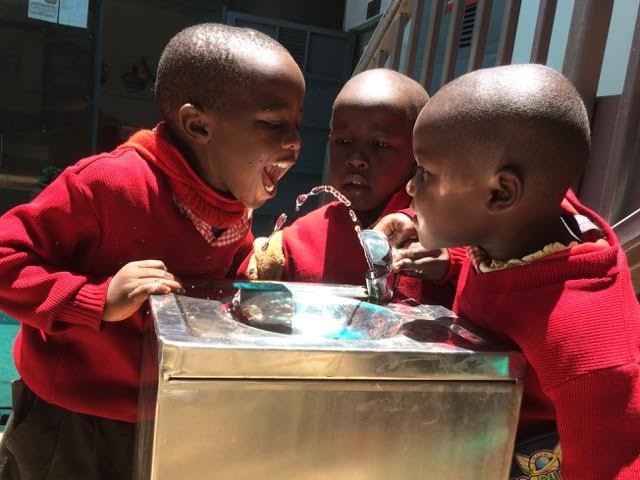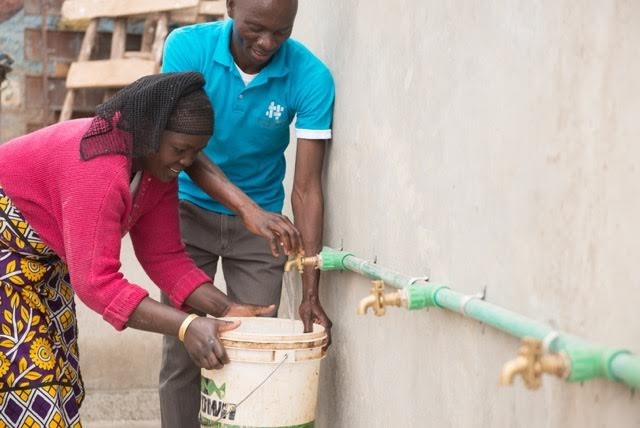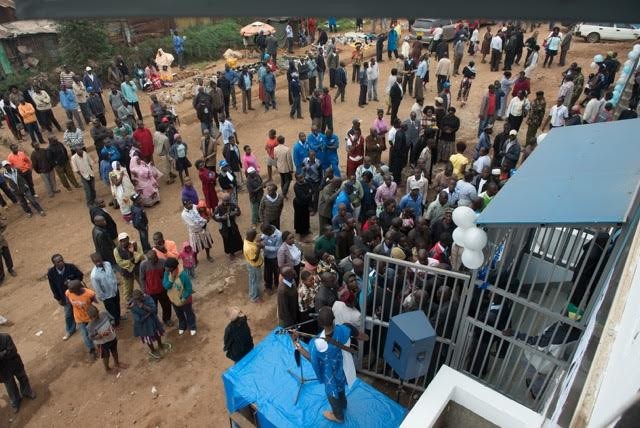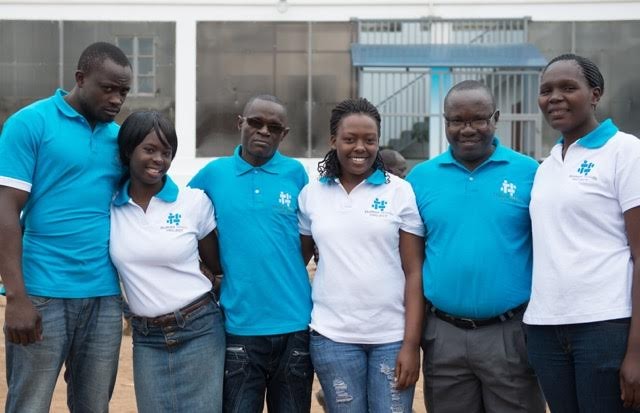In her doctoral studies in Germany, Martha is working on the realization of a socially just and accepted energy transition. For this, she plans to add social and ecological aspects to the current technical and economical focus within energy transition planning processes. The development of an integrated energy system model will assess the impact of energy market reforms on community and household level as well as their implications for distributive justice. Her interests, broadly, encompass, energy justice, the energy transition, energy modeling, and Open Source methods and strategies.
Her work is supervised by Prof. Dr. Pao-Yu Oei from the Department of Energy and Environmental Management at Europa-Universität Flensburg (EUF).
Martha wrote her masters degree thesis at the TU Berlin in the research group Off-Grid Systems at the Reiner Lemoine Institut and developed the simulation tool Offgridders, which sizes electrification options. Following this, from 2019 to 2021, she worked as a researcher at the Reiner Lemoine Institut and was responsible for the project management within the scope of the H2020 research project E‑LAND, in which RLI develops and applies a simulation tool for sector coupled energy systems (Multi-Vector Simulator).
Martha’s fellowship is financed through the C‑BEAR+ project (link: https://reiner-lemoine-institut.de/en/c‑bear/) , funded by the Federal Ministry for Economic Affairs and Climate Action of Germany.
She will be a visiting scholar at RAEL for Spring 2023
Contact: martha.hoffmann@rl-stiftung.de
Sam Miles is a Ph.D. student in the Energy and Resources Group, and in the Renewable and Appropriate Energy Lab at the University of California, Berkeley.
His research focus is at the intersection of the scalability challenge for electricity mini-grids and the socio-economic characteristics of urbanization in Africa, particularly for the artisans and entrepreneurs who constitute the ‘productive’ users of such energy systems. He will engage with these questions as an INFEWS (Innovations at the Nexus of Food, Energy, and Water Systems) NSF scholar.
Previous to life at ERG, Sam worked as a freelance writer covering technology in emerging markets, an educator at the African Leadership University in Mauritius, and as an international development consultant based in West Africa. He holds an MA in International Energy from Sciences Po — Paris and a BA in Ethics, Politics, and Economics from Yale.
At ERG Annelise has continued the study of community energy solutions, with both cooking and community extension services focal areas for her analytic and field studies.
Annelise Gill-Wiehl studied environmental engineering and international development studies at the University of Notre Dame. There, she worked with the Keough School of Global Affairs’ Associate Dean for Policy and Practice, Sara Sievers, through the Kellogg International Scholars Program. They investigated how to incorporate the preferential option for the poor into policy. Gill-Wiehl’s own research investigates energy infrastructure and the barriers to technology adoption. Gill-Wiehl and Professor Sievers piloted a Community Technology Program in Shirati, Tanzania through a Kellogg Research Grant.
While an undergraduate she interned for the Foundation of Sustainable Development in Masaka, Uganda. Additionally, Gill-Wiehl conducted roughly 200 household energy surveys through an Experiencing the World Fellowship to investigate energy infrastructure in Shirati. Her research interests are at the intersection of engineering and policy in the East African context. She hopes to pursue a PhD to further investigate these issues.
Thesis Title: Pilot of Community Technology Workers in Shirati, Tanzania
Shuba is the co-director of the California Energy Commission sponsored project
” Engaging Communities in the Design of Sustainable Energy and Localized Futures (SELF)”
Among her many publications are a number that addresses the energy-access-affordability-climate nexus, including:
- The California Demand Response: Potential Study, Phase 3; Brian F.Gerke,Giulia Gallo,Sarah J. Smith, Jingjing Liu, Peter Alstone, Shuba V. Raghavan, Peter Schwartz, Mary Ann Piette, Rongxin Yin and Sofia Stensson.
- Translating climate change and heating system electrification impacts on building energy use to future greenhouse gas emissions and electric grid capacity requirements in California; Brian Tarroja, Felicia Chiang, Amir AghaKouchak, Scott Samuelsen, Shuba V. Raghavan, Max Wei, Kaiyu Sunand Tianzhen Hong, Applied Energy, 2018, vol. 225, issue C, 522–534
- Building a Healthier and More Robust Future: 2050 Low-Carbon Energy Scenarios for California. California Energy Commission. Primary Authors: Max Wei, Shuba Raghavan, Patricia Hidalgo-Gonzalez, Contributing Authors: Rodrigo Henriquez Auba, Dev Millstein, Madison Hoffacker, Rebecca Hernandez, Eleonara Ruffini, Brian Tarroja, Amir Agha Kouchak, Josiah Johnston, Daniel Kammen, Julia Szinai, Colin Shepard, Anand Gopal, Kaiyu Sun, Tianzhen Hong, and Florin-Langer James. Publication Number: CEC-500‑2019-033; March 2019
- Pathways to Decarbonize Residential Water Heating in California, Shuba V Raghavan, Max Wei, Daniel Kammen, Energy Policy 109 (2017) 441–451
- Adoption of Solar Home Lighting Systems in India: What might we learn from Karnataka? Harish, Iychettira, Raghavan, Kandlikar, Energy Policy, Vol 62, November 2013, pp ‑697–706.
- Assessing the impact of the transition to Light Emitting Diodes based solar lighting systems in India, Santosh Harish, Shuba V Raghavan, Milind Kandlikar, Gireesh Shrimali, Energy for Sustainable Development, Volume 17, Issue 4, August 2013, pp. 363–370.
Hilary received her B.A. in Government and Biological Sciences, with a concentration in Ecology and Evolutionary Biology in the latter, from Cornell University, where she graduated in 2015. At ERG, Hilary is interested in exploring the science-law nexus and the factors – political, economic, and social – that inform the translation of science into legislation. Her academic interests additionally include topics in sustainable development, climate change education, restoration ecology, water and energy efficiency, and environmental justice. Hilary was previously involved in researching energy and wildlife issues as an intern with the NRDC’s Northern Rockies office, and in the year before coming to ERG, she spent some time pursuing another passion, working in Malawi on a death penalty sentence rehearing project. Hilary is a Gates Foundation Millennium Fellow.
Samira Siddique is an MS/PhD candidate in the Energy and Resources Group. Her studies focus on the interconnected social, economic, and physical processes of urbanization and climate change in Asia. She was previously an international development researcher at Mathematica Policy Research, where her work included an evaluation of the Global Protocol for Community-scale Greenhouse Gas Emissions in cities worldwide. Prior to that, she was a researcher at the International Centre for Climate Change and Development in Dhaka, Bangladesh, and at the Centers for Disease Control and Prevention. She received her BA from Wesleyan University in the College of Social Studies and the College of the Environment. Samira has interests in energy in conflict settings, and in urban climate adaptation.
A 2018 paper summarizing her research focus can be found in The Dhaka Tribune, here, and in the RAEL Publications Directory.
Akol Kuan is a civil engineering major and MaserCard Foundation Scholar at UC Berkeley.
In RAEL, Akol is focusing on the design and operation of clean energy mini-grids for refugee communities, with a project focused on the UNHCR Kakuma Refugee Camp. Kakuma is a town in northwestern Turkana County, Kenya. It is the site of a UNHCR refugee camp, established in 1969. The population of Kakuma town was over 180,000 in 2016, having grown from around 8,000 in 1990.
Serena is an Energy Engineering major at UC Berkeley, where she is engaged in number of activities, including:
Working at the Student Environmental Resource Center under the Zero Waste Research Center to help food vendors achieve zero waste goals, creating a culture of zero waste within the student body through education, and conducting research on compostable plastics recycling.
During the Spring 2018 semester Serena is leading a group of 9 students in working with the local nonprofit, Grid Alternatives, to install solar panels on low income family homes in Salinas, California during spring break. Her responsibilities include co-facilitating a class about energy access, equity, energy policy, and solar energy technology in California as well as coordinating housing, fundraising, and transportation to the location.
In RAEL Serena is focusing on the design, operation, power systems optimization, and social impacts of the clean energy mini-grid powering the Human Needs Project in Kibera, Kenya.”
For the Human Needs Project full website, click on:
http://www.humanneedsproject.org

Professor Kammen, serves as the CTO of the Human Needs Project, highlighted how the Kibera Town Center Project provides basic services (water, toilets, showers, laundry) and empowerment services (business skills training, micro-credit, WiFi cafe, health kiosk, green marketplace) to over 800 people per day. These integrated services provide a holistic solution to the challenges of living in a slum. Together, they can help people with a road map to creating a better life.

Kammen demonstrated how clean, local energy can empower vibrant and sustainable community centers. Actress and Human Needs Project Founder and President Connie Nielsen said, “Our vision is to develop a network of community empowerment centers themselves powered by clean energy, which is the most reliable form of power”






You must be logged in to post a comment.